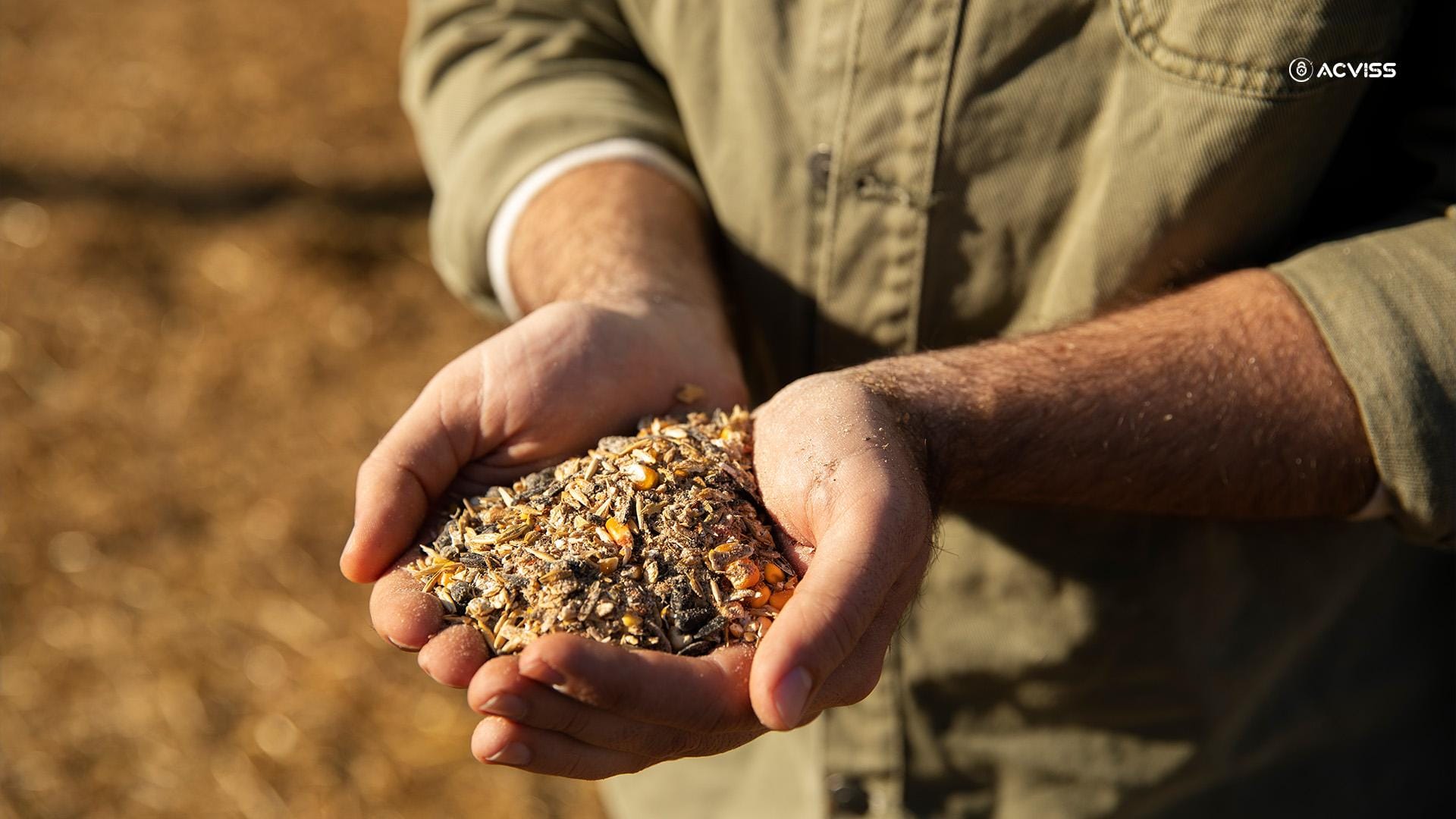Contract Manufacturing in Agro Products: Opportunities, Challenges, and Smart Solutions

The global agricultural economy has been evolving at an accelerated pace. As consumer demand shifts towards better quality, traceable, and sustainable food and agricultural inputs, agro brands are under increasing pressure to deliver consistent standards across borders. In this environment, contract manufacturing has emerged as a strategic tool for scaling operations and maintaining flexibility. But with opportunity comes risk, particularly around product authenticity, brand protection, and the robustness of supply chain management.
For agro brands looking to expand or diversify, understanding the landscape of contract manufacturing, its promise, pitfalls, and how to navigate them is critical.
What Is Contract Manufacturing in Agro Products?
Contract manufacturing, at its core, involves outsourcing the production of goods to a third-party manufacturer. In the agro sector, this may mean farming cooperatives, fertiliser processors, pesticide formulators, or food processors taking on production responsibilities on behalf of a brand.
While it’s common in pharmaceuticals and electronics, contract manufacturing in agriculture is fast gaining ground. The reasons are clear: lower capital investment, faster time-to-market, and access to specialised skills or geographies.
Yet, agriculture isn't just another manufacturing domain. The variables are many: weather conditions, crop quality, regional compliance, and more. And with agro products, trust is paramount. If a product doesn’t perform as promised, the farmer suffers directly, and so does the brand's reputation.
Opportunities That Make Contract Manufacturing Attractive
1. Rapid Market Expansion
Agro brands, particularly those offering input products like seeds, fertilisers, or pesticides, often need to expand rapidly across new regions. Contract manufacturing enables them to meet local demand without setting up full-fledged plants. This approach is especially useful in reaching semi-urban and rural markets where local presence builds credibility.
2. Cost Efficiency
By outsourcing production, brands save on capital expenditure and operational costs. Facilities, workforce, and maintenance are handled by the manufacturing partner, allowing brands to channel their resources towards R&D, marketing, and IP protection.
3. Product Diversification
Launching new variants or adapting products to suit local agricultural practices becomes more feasible when production is decentralised. Brands can test new formulations or packaging options with greater agility.
4. Leveraging Local Expertise
Agro practices vary dramatically from one geography to another. Local manufacturers understand the nuances, whether it’s soil compatibility, regional pests, or local compliance standards. This insight can directly impact product effectiveness.
Challenges in Contract Manufacturing for Agro Brands

While the business case is strong, the risks are equally significant. When another party is responsible for what bears your label, the chances of dilution, deviation, or even duplication are real.
1. Quality Control and Consistency
Inconsistent formulation, poor-quality ingredients, or non-adherence to safety norms can damage both crop yield and farmer trust. Once compromised, brand recovery in the agro sector is an uphill battle. Product verification becomes a necessity, not a luxury.
2. Counterfeiting and Duplication
The agro sector is plagued by fake inputs, counterfeit seeds, adulterated fertilisers, and spurious pesticides that look identical to genuine products. In many cases, counterfeiters use a brand’s name and packaging to deceive farmers. This directly undermines the brand’s promise and can cause devastating consequences on the field.
3. Supply Chain Visibility
Outsourcing production often means outsourcing visibility. Brands may find it difficult to maintain end-to-end product traceability, particularly when multiple vendors are involved across locations. This opens up gaps where grey market players and counterfeiters can operate undetected.
4. Regulatory and Trademark Concerns
Without a robust trademark protection framework, contract manufacturers may unintentionally or deliberately compromise the brand’s IP. This includes unauthorised use of formulations, logos, or packaging. Enforcement, especially across borders, is often expensive and slow.
5. Farmer Loyalty and Trust
When product performance falters, the blame rarely lands on the manufacturer. It’s the brand that suffers. Rebuilding lost brand authentication in rural markets takes time and money, and sometimes, it never recovers fully.
Building a Smarter Manufacturing Partnership
Not all contract manufacturing partnerships are equal. The ones that succeed are backed by systems, technology, and mutual transparency.
1. Due Diligence and Selection
Choosing the right manufacturing partner is crucial. Brands should evaluate not just cost competitiveness but also manufacturing capabilities, track record, certifications, and compliance practices. Contracts should clearly define IP usage rights, quality benchmarks, and escalation processes.
2. Integrated Quality Assurance
Set up shared SOPs (Standard Operating Procedures) and conduct regular audits. Implement sampling protocols, performance benchmarks, and digital quality reporting tools to ensure consistency. The goal is to bring the outsourced unit as close to your internal plant standards as possible.
3. Track and Trace Technologies
Modern track and trace systems help brands monitor the movement of goods across the supply chain, from raw material sourcing to distribution. This not only ensures product traceability but also helps in isolating the source of any quality issue rapidly.
4. Product Authentication at the Last Mile
One of the most effective deterrents against counterfeiting is enabling the consumer, or in this case, the farmer, to verify the product themselves. Product authentication technologies, such as tamper-proof QR codes or unique alphanumeric codes, empower end-users to verify the genuineness of a product using a simple scan.
This approach doesn’t just help in spotting fakes; it builds a direct connection between the brand and the farmer, one built on trust.
5. Legal Frameworks for IP Protection
Every contract should include watertight clauses that protect trademarks, restrict the reuse of packaging materials, and define the extent of formulation disclosure. Periodic checks and third-party monitoring services can ensure ongoing compliance.
Technology as the Backbone of Trust
The modern agro brand cannot rely on goodwill alone. The nature of contract manufacturing requires that trust be built not just through legal agreements, but through technological solutions that offer real-time transparency and accountability.
With the right digital infrastructure in place, brands can:
- Authenticate each batch of product before it reaches the market
- Enable farmers and distributors to verify authenticity at any point
- Identify grey market activity and stop unauthorised resellers
- Trace each product’s lifecycle, from formulation to field
This is no longer optional. In a sector where the consequences of fake or ineffective products are measured in crop failure and farmer loss, technology is the only scalable, reliable safety net.
Turning Manufacturing Complexity into a Competitive Advantage
Contract manufacturing in agro products is not a compromise. When approached strategically, it is a competitive advantage, enabling brands to scale faster, localise better, and serve more markets with precision.
But this model only works when risk is addressed head-on. With product verification systems, brand authentication tools, and end-to-end product traceability, brands can secure their reputation, protect their IP, and safeguard their customers.
Interested in building a traceable, verifiable product experience? Learn more about Acviss' product authentication and traceability solutions from our experts!
